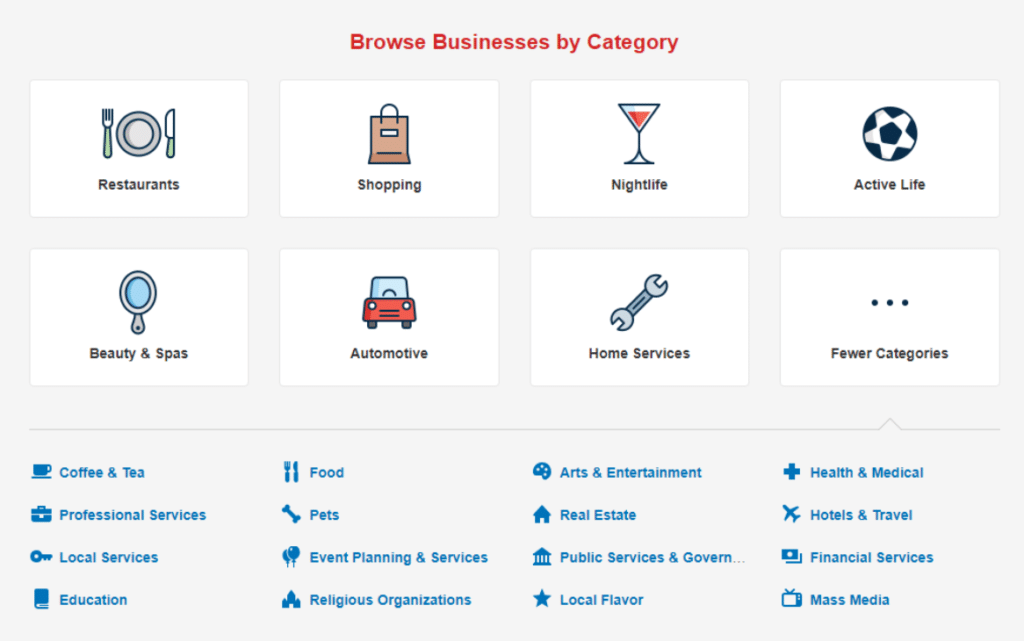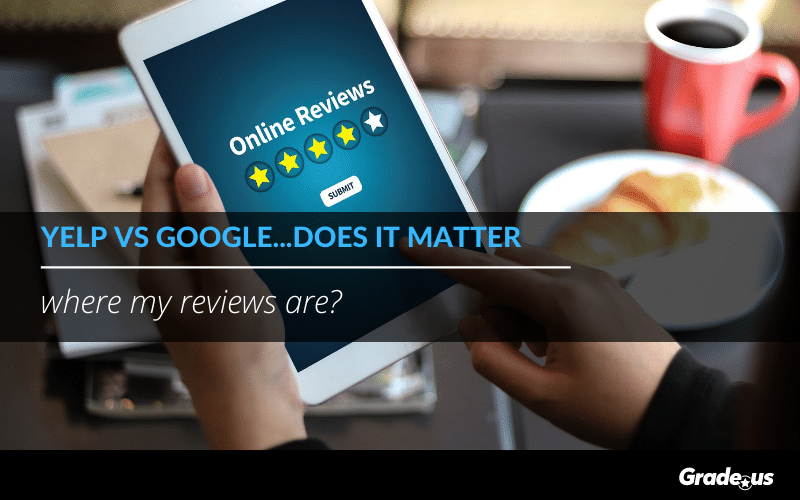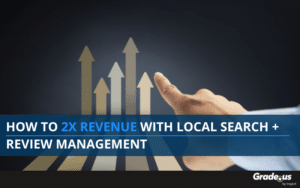A review is a review. Does it really matter where they’re posted?
Google, Yelp, Facebook, and TripAdvisor are the big four in the review landscape, but there are more than 180 review sites focused on a variety of industries and niches.
Which one do you choose?
You don’t have the time to manage all of them, and there’s no way to know which one will produce the greatest results ahead of time (or is there?).
Yelp vs. Google: Which one is more important?
Yelp has a PR problem.
The company and its reviewers are viewed as divas who are eager to post negative reviews about businesses. But the research shows the opposite Yelpers are generous.
- 69 percent of reviews are four and five-star reviews
- 51 percent of reviews are five-stars, 18 percent are four-stars
- 70 percent of reviewers would recommend the business they’ve reviewed
- 22 percent would not recommend companies they’ve reviewed
Here’s why Yelp reviews are essential for your business.
Research shows each new star on Yelp produces, on average, a 9 percent increase in revenue. Moving from a three to five-star aggregate review increases clicks from Google search by 25 percent! On top of that, five-star ratings earn 39 percent more clicks from Google.
So Yelp wins, right?
Not so fast; we haven’t covered Google yet.
Google has 57.5 percent of all reviews worldwide across all review platforms on planet Earth. Facebook comes in second at 19 percent, while TripAdvisor and Yelp trail behind with 8.4 percent and 6.6 percent, respectively. All other platforms fight for a very modest 8.6 percent.
Google reviews are a must.
Their search algorithm uses your review portfolio’s strength, recency, and relevance to rank your business. According to a 2018 ranking factors study by Moz, online reviews make up 6.47 to 15.44 percent of local search ranking factors; 25.12 to 27.94 percent of your local search rankings depend on your Google Business Profile, according to a 2018 ranking factors study by Moz.
Which one do you choose?
Grade.us can help
Yelp and Google are both essential; which one do you choose?
The vast majority of businesses are listed in Google.
The more diverse your review portfolio, the better your rankings will be in Google search and Google Maps. The stronger your review portfolio, the more clicks, traffic, and conversions you’ll receive.
What about Yelp?
Yelp covers the following business categories.

Do these categories fit your business? Are your competitors building their review profile on Yelp?
If so, you need Yelp.
So what does this mean, then? How do we reconcile this if both Google and Yelp are essential components of a strong review portfolio?
You focus on both.
How to get Yelp reviews
You don’t get them by asking, that’s for sure.
Yelp is known for its “don’t ask for reviews” policy. Yelp wants customer reviews to be unprompted and spontaneous. They don’t want customers to be prompted, coached, or encouraged by businesses to write a review.
How do you get more Yelp reviews?
- Claim your business on Yelp
- Optimize your Yelp profile
- Requesting a “Find us on Yelp” sticker (you can request one here)
- Earn a “People Love Us on Yelp” window cling for your business
- Post “Find us on Yelp” sign in your business
- Encourage more visits by hosting regular Yelp events. Head over to yelp.com/events, choose your city, then click the red “Create an Event” button. Add your event details, and you’re all set!
- Create Yelp deals and gift certificates for your business page
- Share, embed and print out positive (and a few negative) reviews. Display them in your email newsletter, in your business, and a checkout
- Create and print off a Yelp QR code for customers to scan
- Post a Yelp review badge on your website or emails
- Add a link to your Yelp profile in your email signature
- Share your positive reviews on social media (e.g., images with links on Facebook, Twitter, etc.)
- Share positive reviews and customer success stories in your online and offline marketing materials (e.g., direct mail, ads, landing pages, etc.)
- Ask customers to find your business on Yelp
- Add positive reviews to your fulfillment materials, packaging, receipts, notes, etc.
Each of these options improves the odds that you’ll be able to attract reviews from customers.
How to get Google reviews
Google has no problems with you requesting reviews from customers, so long as customers aren’t incentivized to write reviews. Here’s the official word from Google on review requests.
You can request reviews from customers through a short URL that’s specific to your business. To get reviews on Google, encourage your customers to spread the word about your business with these best practices:
- Verify your business (via Google Business Profile, formerly known as Google My Business), so your company appears on Maps, Search, and other Google services. Only verified businesses can respond to Google reviews.
- Remind customers to leave reviews. Customers are more likely to write a review if they know that it’s fast and easy for them to do so via their mobile device or computer.
- Reply to reviews. Most of your customers expect a response to their reviews, yet 75 percent of businesses do not respond to customer reviews. If you read and reply to their reviews, customers are more likely to leave more reviews in the future.
If you’re using a review management tool like Grade.us, this process is largely automated. What if you need to request reviews manually?
It’s easy; just follow these steps.
When to use Yelp or Google for reviews
As a general rule, you’ll want to prioritize Google reviews first. Remember, your Google Business Profile has a disproportionate impact on your visibility in Google Search and Google Maps (25.12 to 27.94 percent of your local search rankings).
It’s a good idea to optimize your GBP listings first.
But why?
The local businesses that move their GBP rating from a 3.5 to 3.7 stars experience, on average, a conversion growth of 120 percent. Businesses with more than 82 total reviews earn, on average, 54 percent more annual revenue.
A two-to-one ratio is a good start: Two Google reviews for every one Yelp review.
Once you have a stable number of reviews on both Google and Yelp, you can focus on industry-specific and niche sites.
Yelp vs. Google: It's not either-or. It's both
Search engines and customers determine which platform is best for your business. As we’ve seen, the review site you use matters. Google, Yelp, Facebook, and TripAdvisor are the big four in the review landscape; start with these mainstream sources, then drill down to the industry-specific and niche platforms.
Which one do you choose?
You choose both. With the right structure and good timing, you’ll have the tools and resources you need to maximize value. Mainstream, industry-specific, and niche sites — use the order of operations to generate the visibility, clicks, traffic, and revenue your local business needs.








